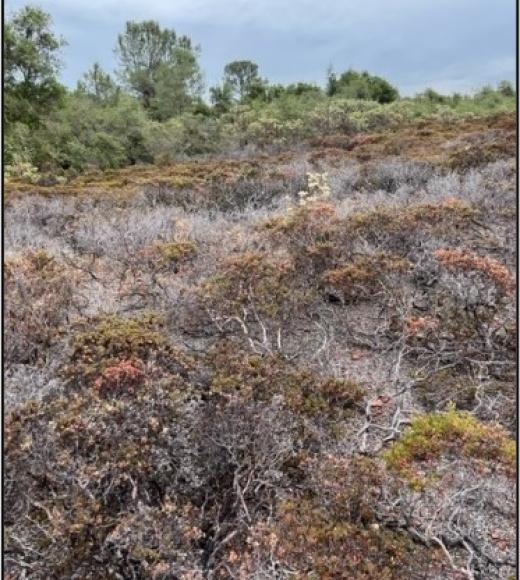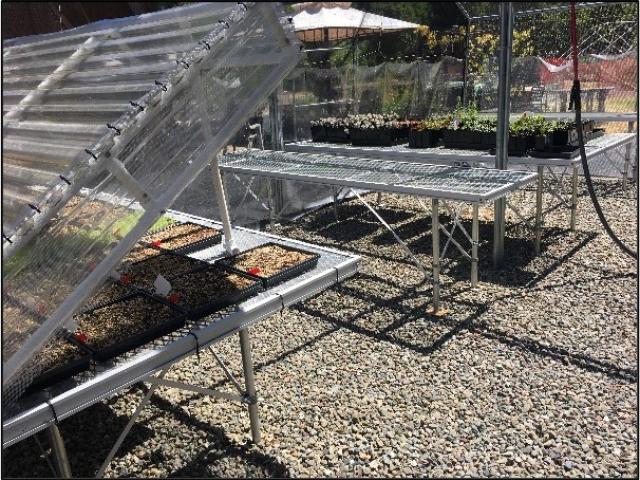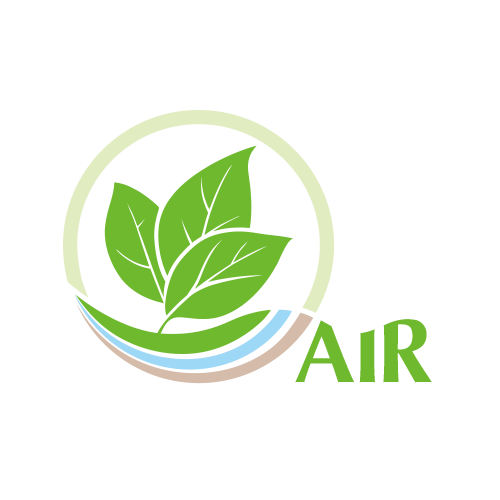What is AIR
Accreditation to Improve Restoration (AIR) is a program to implement the systematic use of clean production practices designed to exclude Phytophthora plant pathogens from nurseries. Nurseries that consistently follow the Nursery Phytophthora Best Management Practices (NPBMPs) used by the AIR program have been able to consistently produce nursery stock free of detectable Phytophthora infection. The pilot phase of AIR began in 2018. As of July 2022, 25 nurseries have been active in the program with on-site nursery evaluations conducted at 17 northern and 8 southern California restoration nurseries.

Why AIR?
Over the past several years, numerous Phytophthora plant pathogens have been detected in California native plant nurseries and habitat restoration sites. Planting Phytophthora-infected nursery stock into native habitats may be the most direct means of introducing these pathogens into wildlands, inadvertently and irrevocably damaging these sensitive habitats. Nursery growers, restoration specialists, and plant pathologists have come together to address the issue through the AIR program.
AIR is a voluntary, audit-based accreditation program designed to increase the confidence in the cleanliness of restoration and native plant nursery stock. Nurseries and greenhouses participating in the AIR program conduct a self-assessment to confirm that they are producing plants with the practices outlined inthe CalPhytos/CNPS Best Management Practices for restoration nursery stock. The review covers propagation, irrigation, seed collection and storage, layout, etc. An auditor visits the facility, checks the nursery’s self-assessment and samples for Phytophthora species. Depending on the results of the lab tests and auditor findings, modifications are recommended so nurseries can become AIR compliant. If the nursery doesn’t have major recommendations after audit, it is deemed “AIR compliant” for two years. There is no fee for a nursery to participate.
Background / Need Statement

Root rots and other diseases caused by introduced Phytophthora species (water molds that infect plants) continue to be a growing problem globally. Plant pathologists have long been concerned that nursery stock may be commonly infected with an array of destructive Phytophthora species, but disease symptoms can be suppressed with fungicides, allowing infected plants to be sold. After planting, Phytophthora-infected plants may survive for months to years, but usually grow poorly and may eventually die from root rot. However, the Phytophthora introduced with the plant can permanently infest the planting site and spread to infect adjacent plants, causing a spreading zone of plant dieback and death. Starting in 2014, California plant pathologists showed that many Phytophthora species were present in nursery stock being used for habitat restoration, inadvertently introducing these serious pathogens into native habitats. This was effectively degrading rather than restoring habitats. As a response to these findings, restoration nurseries, land management agencies, researchers and non-profit organizations created the Phytophthora working group–PWG . The main goal of PWG is to coordinate management strategies to reduce Phytophthora spread on California native plants
Objective
To sustain plant health of native ecosystems by preventing Phytophthora introductions from restoration plantings. By making Phytophthora-free nursery stock available through AIR program nurseries, we aim to increase the use of clean stock in all sites and applications that pose a risk of Phytophthora introductions into native habitats.
